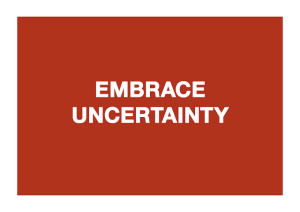One of clearest, most knowledgeable, and most readable pundits on financial markets is a guy named Bill Gross. Gross, known in financial circles as the “The Bond King” and the founder of mutual fund giant PIMCO, writes an entertaining monthly letter with musings on his life, asset prices and value, and the future direction of financial markets.
Despite the nice things I just wrote about Gross, you should never, ever, take his advice when it comes to investing. Ever. The man’s monthly newsletters are the most egregious example of what’s known in finance as “Talking your book.”
“Talking your book” means telling other people how they should trade based on what would benefit your own financial portfolio and positions.
In Gross’ case, every single newsletter he’s written for the past twenty years concludes with an exhortation or justification to buy bonds. Which is pretty coincidental, considering he built the world’s largest bond fund.

As a salesman, he’s phenomenal.
As a reliable ‘expert’ on financial markets whose advice should be acted upon? He’s a total catastrophe.
Ordinary course of business
Back in my Wall Street days, people talked their book as a matter of course. It was literally my job to explain to clients why the bonds held on my firm’s books were the ones they should buy, or why clients should position themselves with securities the same way we were positioned. That way, I attempted to create demand for the things my firm already owned so we could sell them. Or conversely, if necessary, talking our book allowed us to turn our risks into their risks. Much of Wall Street works this way.
My clients were extremely sophisticated investors and traders, and I don’t feel bad about this at all. They generally talked their books back to me in the hope I would have the same effect on my firm’s investment decisions. We all got very good at recognizing who was talking their book, and, overall all’s fair in love and war and bond sales. Not a big deal.
After I left Wall Street though, I noticed not everybody knew that nearly all finance experts talk their book, nearly all the time.
Knowing this can help in other situations as well.
South Texas
A friend of mine works in the oil and gas industry, delivering trainloads of sand across the country to fracking sites in South Texas. For the past six months, everybody in the fracking industry – from the drillers to the truckers to the hoteliers to the logistics companies – has been cutting back, idling workers and equipment, hoping to ride out the decline in oil prices.
My friend’s company delivers a fraction of the volume of sand that they used to deliver, a year ago.
He described to me how everybody in his world spends a lot of time obsessing over the future price of “the barrel,” which generally means the commodity price of WTI, which stands for West Texas Intermediate Crude. If WTI (aka ‘the barrel’) recovers six to twelve months from now they know all will be well for them and the industry survivors will reap huge profits. If “the barrel” stays low longer than that, however, many companies and people will be wiped out.
In that environment, with everybody’s business so exposed like that, few people can speak objectively about the “the barrel.” Everybody is left ‘talking their book.’
My friend says everybody’s got a theory about when and how prices will soon rise. Maybe geopolitical trouble with Iran will heat up again, hopefully? Maybe the Saudis will stop flooding the market with their crude to punish non-OPEC producers? A particularly hot summer is sure to boost energy demand and sop up the excess supply in the market, right? I mean, surely the new storage tank capacity in Oklahoma will allow us to ride out this oil glut, no? Maybe the US Government will stop dumping oil into the market to punish the Russians for their Ukraine aggression? (That last one is apparently a widely held theory to explain the drop in oil prices, which I find absurd.)
Every expert speaking on a panel to the oil and gas industry, or to a journalist covering the industry, has a theory on when prices will rise. Please give us some good news, the oil and gas industry folks all seem to be saying to each other.
Here’s the problem, though. They are all talking their book. Their views are not to be trusted at all.
Either consciously or unconsciously, people talking their book are particularly unreliable experts on the future of financial markets.
Experts in finance “talking their book” may simply be clever salesmen, like Bond King Bill Gross. Or they may be anxious and exposed to markets, like the entire oil and gas industry in South Texas.
People talking their book generally only mention out loud the data that support their position. The counter view of the market, “the other side of the trade,” generally goes wholly unmentioned.
Here’s some advice you can use. You should always assume that any industry expert you see on television, in print, or online is talking their book. They didn’t go on TV to give you all sides of the story, but rather the data that supports their book of business.
How can you find people in finance who are not talking their book?
Look for the ones who admit to uncertainty. Seek out the experts who tell you what they don’t know, what cannot be predicted, and how opaque the future really is.
When they present data to support both sides of the market – why bonds may be good or bad, or why WTI could go up or down depending on a complex interaction between a series of unknowable, contingent, events – now you may be listening to someone not talking his book. Now you may be hearing from a real expert.
Keep looking for this.
A version of this appeared in the San Antonio Express News.
Post read (1766) times.






